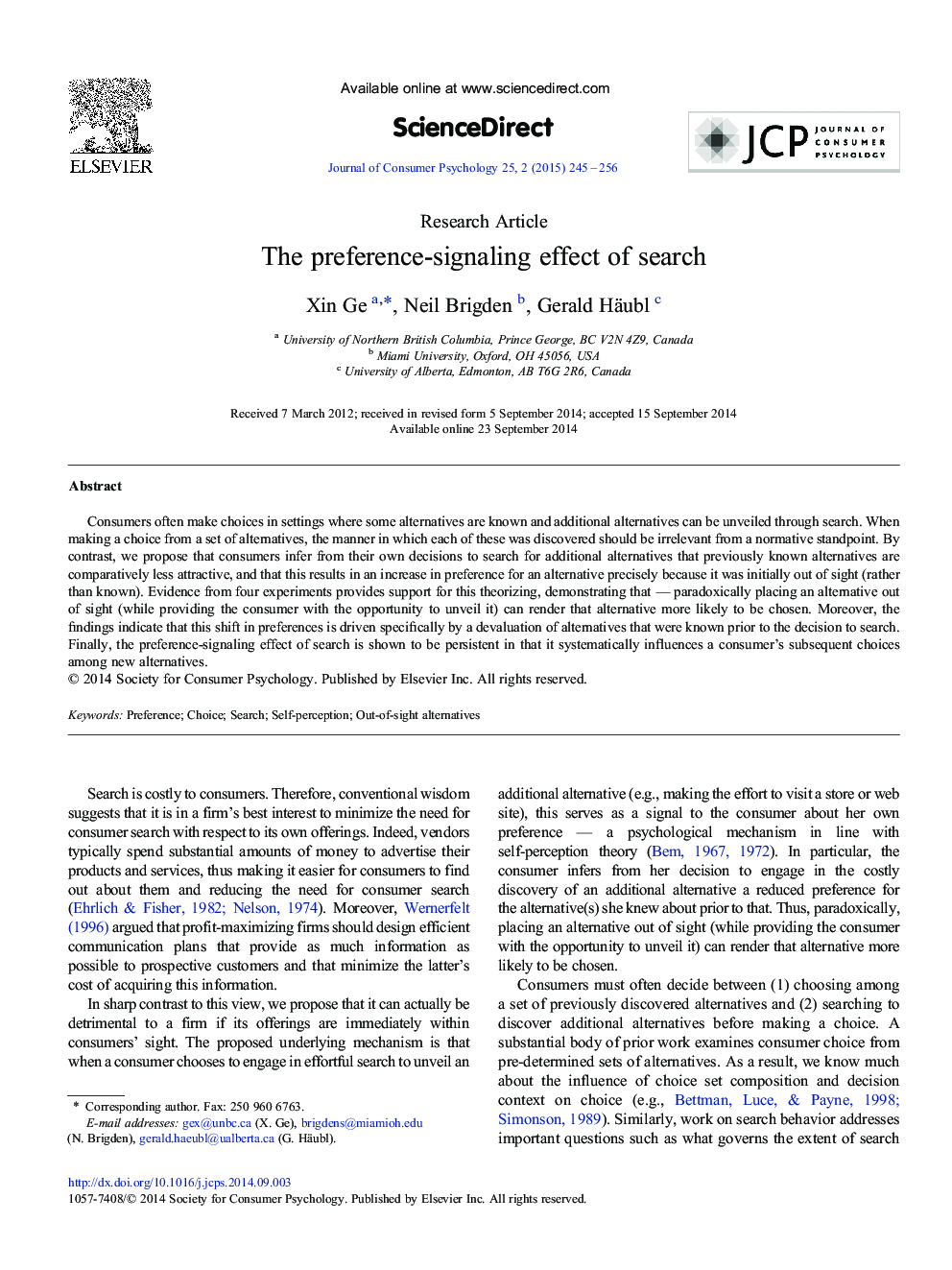| Article ID | Journal | Published Year | Pages | File Type |
|---|---|---|---|---|
| 882162 | Journal of Consumer Psychology | 2015 | 12 Pages |
Consumers often make choices in settings where some alternatives are known and additional alternatives can be unveiled through search. When making a choice from a set of alternatives, the manner in which each of these was discovered should be irrelevant from a normative standpoint. By contrast, we propose that consumers infer from their own decisions to search for additional alternatives that previously known alternatives are comparatively less attractive, and that this results in an increase in preference for an alternative precisely because it was initially out of sight (rather than known). Evidence from four experiments provides support for this theorizing, demonstrating that — paradoxically placing an alternative out of sight (while providing the consumer with the opportunity to unveil it) can render that alternative more likely to be chosen. Moreover, the findings indicate that this shift in preferences is driven specifically by a devaluation of alternatives that were known prior to the decision to search. Finally, the preference-signaling effect of search is shown to be persistent in that it systematically influences a consumer's subsequent choices among new alternatives.
